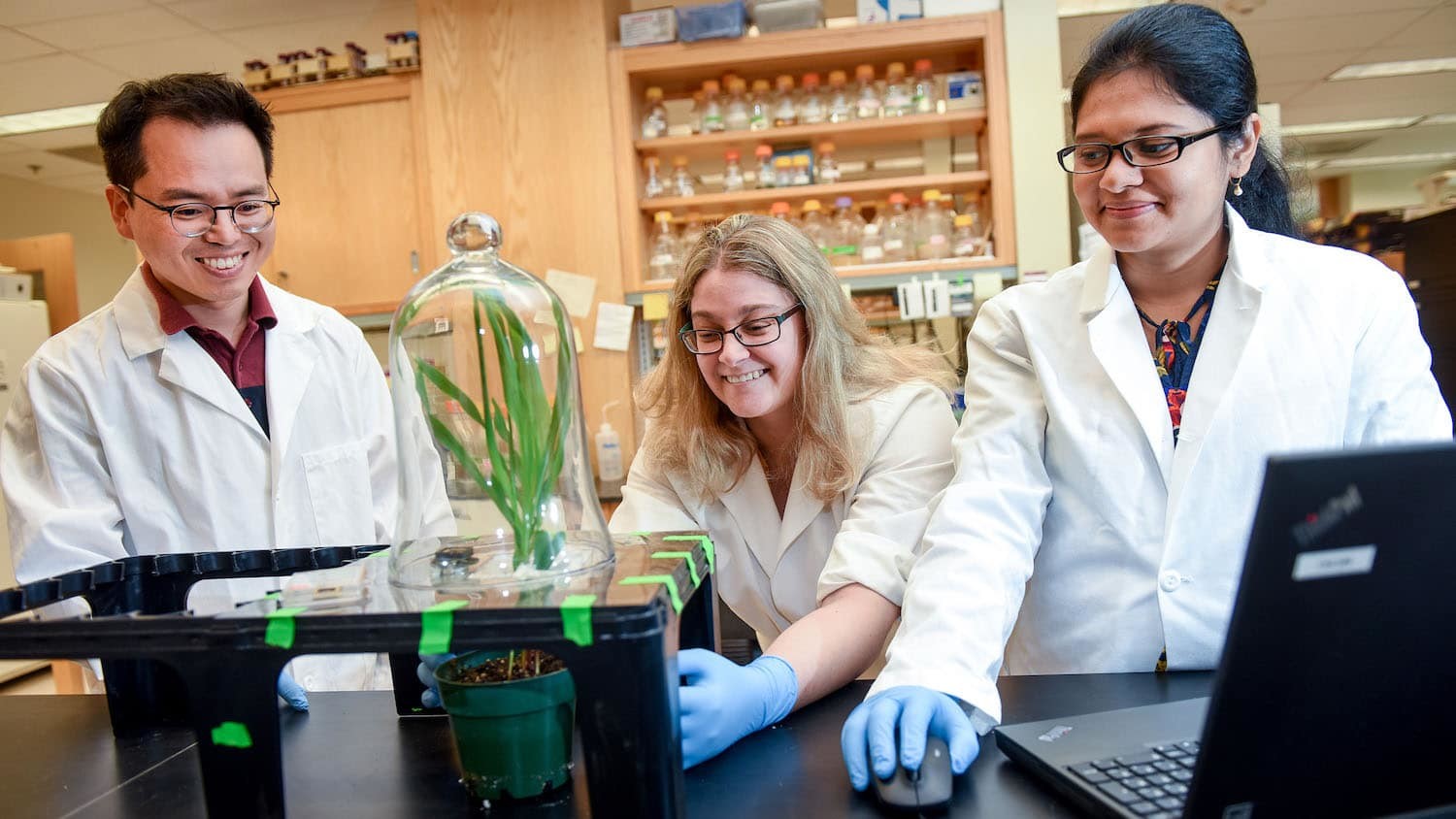
NC State Team Wins BASF Plant Science Competition
Winning team of a plant scientist and two electrical engineers identifies new technology to detect biotic plant health stress
July 30, 2018 ![]() Charles Hall
Charles Hall
A cross-pollination between electrical engineers and plant scientists at NC State proved itself as BASF Corporation selected a graduate student team from North Carolina State University as the winner of its fourth annual North American Science Competition.
The team was selected from 13 teams from the US and Canada that submitted projects to the competition. The winning team members, Dr. Nasie Constantino (CALS), Marzana Mantasha Mahmud (ECE) and Chunkyun Seok (ECE), each received a $1,000 cash award. The task of this year’s competition was to develop solutions to identify plant responses to stress.
By the time crops show physical symptoms that they’ve been attacked by insects, plant pathogens or other stressors, it is often too late.
Working together, the two engineers and plant science researcher created a tiny array of sensors coated with polymers that can detect the unique bouquet of volatile organic compounds, or VOCs, that plants emit in response to different stressors. VOCs activate the plant’s molecular defense systems, attract beneficial insects and warn surrounding plants of an impending attack.
“We are continually trying to find ways to equip our customers with the tools they need to get ahead of plant health issues,” said Luke Bozeman, BASF Director, Research and Development, U.S. Crop Protection, headquartered in the Research Triangle Park. “This competition provided a unique opportunity for young academic researchers to work in teams to help identify solutions to a real global plant health concern.”
With multiple factors affecting a plant’s ability to grow to maturity, the team’s sensor technology could allow for a timely and targeted response which ultimately helps improve a farmer’s ability to produce healthier and more robust crops.
The team successfully created a quarter-sized sensor that could immediately detect the VOCs emitted by corn plants when wounded or attacked by an insect. To further their research and refine the sensor array, the team has received additional funding from BASF.
“With the cash prize and mentorship from BASF scientists, we can further our research now,” said engineer Marzana Mantasha Mahmud. “As electrical engineers, we are so excited that we can contribute to this project. It’s a whole different field of study for us.”
